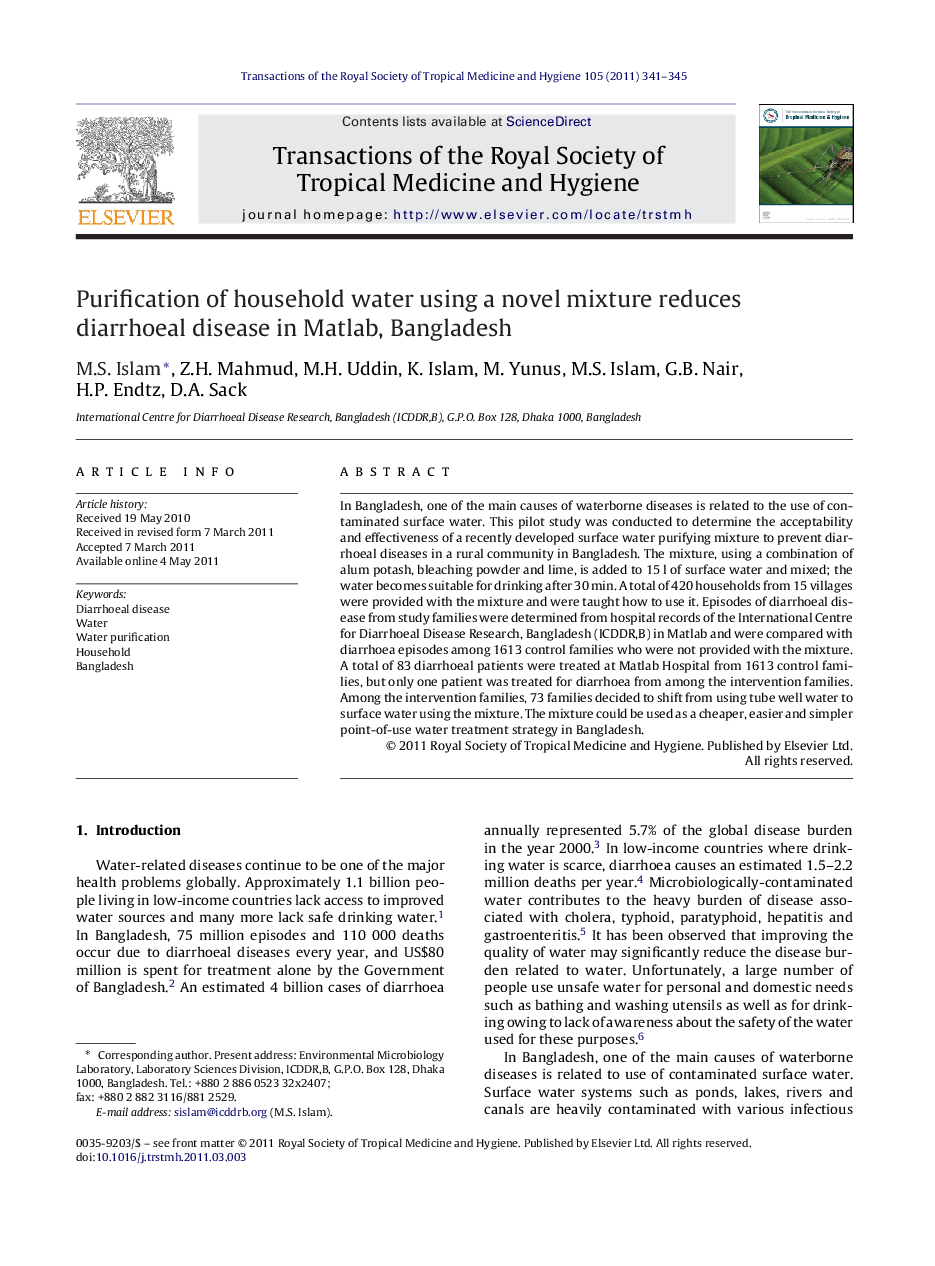| Article ID | Journal | Published Year | Pages | File Type |
|---|---|---|---|---|
| 3420527 | Transactions of the Royal Society of Tropical Medicine and Hygiene | 2011 | 5 Pages |
Abstract
In Bangladesh, one of the main causes of waterborne diseases is related to the use of contaminated surface water. This pilot study was conducted to determine the acceptability and effectiveness of a recently developed surface water purifying mixture to prevent diarrhoeal diseases in a rural community in Bangladesh. The mixture, using a combination of alum potash, bleaching powder and lime, is added to 15 l of surface water and mixed; the water becomes suitable for drinking after 30Â min. A total of 420 households from 15 villages were provided with the mixture and were taught how to use it. Episodes of diarrhoeal disease from study families were determined from hospital records of the International Centre for Diarrhoeal Disease Research, Bangladesh (ICDDR,B) in Matlab and were compared with diarrhoea episodes among 1613 control families who were not provided with the mixture. A total of 83 diarrhoeal patients were treated at Matlab Hospital from 1613 control families, but only one patient was treated for diarrhoea from among the intervention families. Among the intervention families, 73 families decided to shift from using tube well water to surface water using the mixture. The mixture could be used as a cheaper, easier and simpler point-of-use water treatment strategy in Bangladesh.
Related Topics
Life Sciences
Immunology and Microbiology
Applied Microbiology and Biotechnology
Authors
M.S. Islam, Z.H. Mahmud, M.H. Uddin, K. Islam, M. Yunus, M.S. Islam, G.B. Nair, H.P. Endtz, D.A. Sack,
